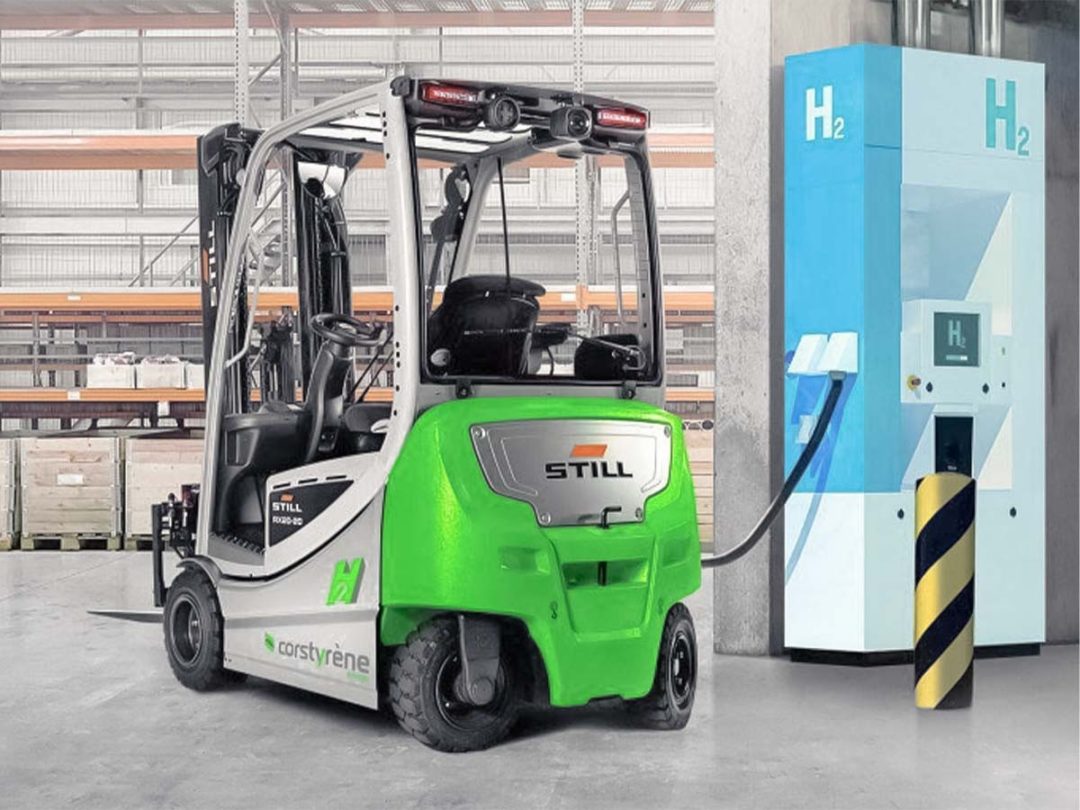Home » Kion Group to develop and produce its own fuel cell systems for forklifts
Kion Group to develop and produce its own fuel cell systems for forklifts
Company to launch its own 24-volt fuel cell systems for warehouse equipment this spring.

German industrial truck producer Kion Group is diving deeper into hydrogen propulsion to power its equipment, saying this week it will invest approximately $11.7 million in the technology to develop and produce its own fuel cell systems for lift trucks. Company leaders said they will launch a 24-volt fuel cell system this spring, with other systems to follow, and that the first forklifts using those systems will be released later this year.
Hydrogen fuel cell technology is an alternative to traditional lead-acid batteries, offering lower emissions and more sustainable drive with quick tank filling, according to Kion Group.
The systems will be produced in Europe.
The investment will allow Kion to offer customers hydrogen-powered solutions from a single source, providing the forklift, the fuel cells, and associated service, according to the company.
“As of today, the [Kion Group] will be the only manufacturer of forklifts and warehouse equipment in the European market to produce its own fuel cells, something that truly sets us apart,” Rob Smith, CEO of the Kion Group AG, said in a press release Wednesday. “There is huge demand from our customers and we hope that this technology will allow us to meet ever-increasing calls for intralogistics to become more resource-conscious and sustainable, while at the same time also meet demands for rapid refueling.”
The move builds on Kion's decades of experience with the energy source, the company also said. Kion subsidiary Linde Material Handling GmbH has been focusing on the technology since 1997, producing its first hydrogen fuel cell-powered trucks in 2010. Today, Linde offers one of the widest portfolios of fuel cell drive industrial trucks on the market, according to the company. About 80% of all models are available with the technology, including pallet trucks, tractors or reach trucks, and counterbalanced trucks. Kion subsidiary Still GmbH has long used the technology as well, implementing hydrogen projects for various truck types since 2003, the company said.
Material Handling Batteries/Chargers/Motors/Fuel Lift Trucks, Personnel & Burden CarriersKEYWORDS KION Group
Related Articles
Copyright ©2024. All Rights ReservedDesign, CMS, Hosting & Web Development :: ePublishing